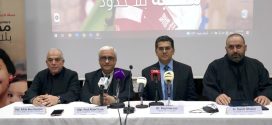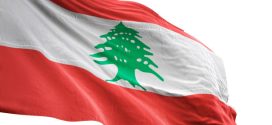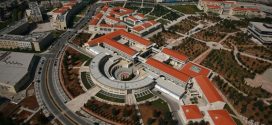Antelias, December 22nd , 2003
The Union Catholique Internationale of the Presse – Lebanon (UCIP-Liban) considers that the death of 15 foreign workers in a fire that took place in a factory last week was not sufficiently covered by the Lebanese media considering the size of the catastrophe. The UCIP also calls for reconsideration of the decision aiming at forbidding news bulletins on New TV and of the broadcast by the media of Iraqi President Saddam Hussein. The UCIP statement includes the following:
1- The fire that took place in a Lebanese factory and that caused the death of 15 foreign workers was not sufficiently covered by the Lebanese media that dealt with it as a short news item. This tragic incident should have been in the headlines for many days in order to make an enquiry about the causes of the accident and urge the authorities to work on avoiding any repetition of such an incident. The value of men is one, whether they are Lebanese or foreigners, rich or poor. If it is necessary to defend those human values in order to preserve human society and its progress, it is also a priority for the media and one of their obligations in this field.
2- The decision aiming at forbidding news bulletins on New TV for the reasons mentioned by the National Council for Information and some of the officials was denounced by the international organizations dealing with freedoms of the media and by different parties in Lebanon. This negative measure is contrary to media freedoms and will only lead to more attacks against the reputation of Lebanon in the world, instead of preserving it; it will finally destroy what is let from the value of Lebanon as the only democratic and plural country in the Middle-East that was – and can still be – an example of respect of media freedoms. Maybe it would have been better to sue that TV station and give it a material sentence in case violation is proven and provided the decision-makers act with objectivity and impartiality according to the international and scientific criteria and principle of prevalence of the Lebanese interest and values over other personal values and norms.
3- The images broadcast by the world media – including the Lebanese media – about the arrest of the Iraqi President Saddam Hussein are against the ethics of the media and the professional, human morals – namely Christian – that reject such humiliation of any person whatever his/her past is. They are also contrary to the content of the international conventions that mention the necessity to respect war prisoners and treat them with a minimum of respect of the human dignity. By broadcasting such images, the media should have assorted them with comments and explanation about the causes and circumstances they had been taken in; and all within the framework of the sacred mission of the media and their critical and scientific constructive role instead of serving objectives of publicity and open vengeance.
4- "The Middle-East does not need walls, but bridges", this is what His Holiness the Pope John Paul II says. This reality is a good expression of a humanity aspiring to a true peace in the region based on the respect of the rights of the peoples and of the States to live in freedom and prosperity and on dialogue as a solution for conflicts and prerequisite for peace. Under this noble vision, the UCIP-Lebanon cannot but join His Holiness the Pope in inviting the religious and civil leaders in the whole world to follow His example in this noble endeavor praying the Lord Jesus prince of peace and the light that rises from the East to work on having peace and prosperity rule over our nation, the region and the whole world, with the beginning of the new year.


 الاتحاد الكاثوليكي العالمي للصحافة- لبنان اوسيب – لبنان
الاتحاد الكاثوليكي العالمي للصحافة- لبنان اوسيب – لبنان




